 Petzlover
Petzlover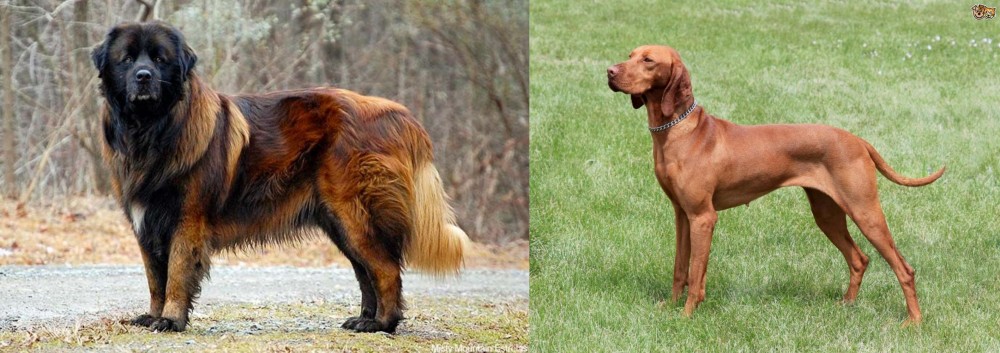 Estrela Mountain Dog is originated from Portugal but Hungarian Vizsla is originated from Hungary. Estrela Mountain Dog may grow 8 cm / 4 inches higher than Hungarian Vizsla. Estrela Mountain Dog may weigh 20 kg / 45 pounds more than Hungarian Vizsla. Both Estrela Mountain Dog and Hungarian Vizsla has almost same life span. Both Estrela Mountain Dog and Hungarian Vizsla has same litter size. Estrela Mountain Dog requires Moderate Maintenance. But Hungarian Vizsla requires Low Maintenance
Estrela Mountain Dog is originated from Portugal but Hungarian Vizsla is originated from Hungary. Estrela Mountain Dog may grow 8 cm / 4 inches higher than Hungarian Vizsla. Estrela Mountain Dog may weigh 20 kg / 45 pounds more than Hungarian Vizsla. Both Estrela Mountain Dog and Hungarian Vizsla has almost same life span. Both Estrela Mountain Dog and Hungarian Vizsla has same litter size. Estrela Mountain Dog requires Moderate Maintenance. But Hungarian Vizsla requires Low Maintenance
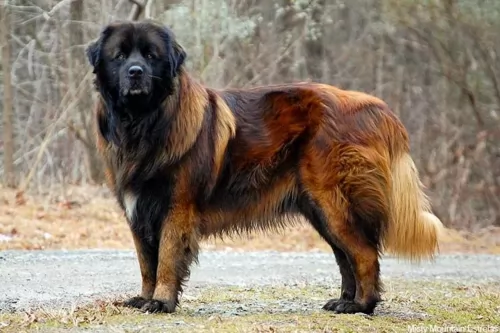 Also known as the Cao da Serra de Estrela, the large Estrela Mountain Dog from Portugal is an ancient breed, having been used for centuries to guard homesteads and livestock.
Also known as the Cao da Serra de Estrela, the large Estrela Mountain Dog from Portugal is an ancient breed, having been used for centuries to guard homesteads and livestock.
The Estrela, as a herding dog, has been developed over a long period of time because shepherds particularly wanted a dog that could survive in the mountains and be strong enough to guard livestock from predators.
The first official recorded breed standard was published in 1933, with an attempt to make the Estrela a distinct breed with a hooked tail and double dew claws.
Today the Estrela is a dog which can be found in other countries beyond Portugal, and in fact in 1973 pairs of the dogs were imported to the United States.
 The Hungarian Vizslas existed in the land that is now Hungary, the Pannonian Basin, at least since the 10th century when they were shown on etchings. It is thought that their descendants were various pointers, the extinct Turkish Yellow Dog and the Transylvanian Hound. The Vizsla is a hunting dog with the word being Hungarian for pointer. In 1937 the Carmelite Friars under orders from King Louis I of Hungry. The breed was isolated for centuries in the Basin by the aristocracy and land owners.
The Hungarian Vizslas existed in the land that is now Hungary, the Pannonian Basin, at least since the 10th century when they were shown on etchings. It is thought that their descendants were various pointers, the extinct Turkish Yellow Dog and the Transylvanian Hound. The Vizsla is a hunting dog with the word being Hungarian for pointer. In 1937 the Carmelite Friars under orders from King Louis I of Hungry. The breed was isolated for centuries in the Basin by the aristocracy and land owners.
The Magyar people of the area developed the breed for hunting as both pointers and retrievers. They were excellent at hunting rabbits and water fowl. With a terrific sense of smell and boundless stamina and energy, the were prized as family and companion dogs as well. This was unusual for a hunting or working dog. Their size made them appealing as well. They were small by comparison to other hunting dogs both pointers and retrievers.
Easy to train, the Hungarian Vizsla works in water, forests and fields. They are able to retrieve in the water as well as on the land. Throughout their history, the breed outlasted the Turkish Revolution, the Hungarian Revolution World War 1 and World War 2, as well as the Hungarian People’s Republic Communist State. Things were a little dicey for the Vizlas several times beginning in the 1800’s when German Shorthaired Pointers and English Pointers were introduced into the area. The next time was after World War II. Fearful of what this Communist state would mean for the breed, some were smuggled into the United States and Austria.
At that time there were only a dozen or so Vizslas in all of Hungary. Their numbers were brought back from that small breeding stock. This history did result in several different strains grew into their own breeding stock. There are Vizslas in Czechoslovakia, Romania, Serbia and Austria. There developed separate lines that became separate breeds in the Wirehaired Vizsla and the longhaired Vizsla which is very rare.
After World War II, the Hungarian Vizsla came to the United States and the Vizsla Club of American was established as a first step toward AKC (American Kennel Club) recognition. This was attained in 1960. Rex del Geisimino came to the U.S. in 1951 and he was able to respond to commands in both German and Hungarian. Vizslas also came to the United Kingdom in this time frame. There are now about 4500 registered with the KC (Kennel Club of Great Britain). A Vizsla won the distinctive Crufts Dog Show in Great Britain, as Best in Show.
It is believed that this gentle, sensitive and affectionate hunter was part of the original breeding stock or the Wirehaired Vizsla, the Weimaraner and the German Shorthaired Pointers. The Hungarian Vizsla is intelligent and social. The need your attention as well as a lot of exercise to avoid destructive behavior born of boredom. They want to be with you and they can be very protective of you.
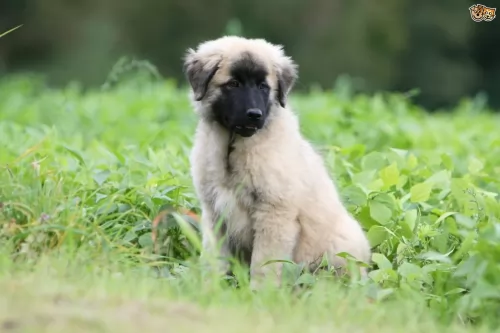 The large Estrela Mountain Dog stands between 62 and 72cm and weighs between 30kg and 50kg.
The large Estrela Mountain Dog stands between 62 and 72cm and weighs between 30kg and 50kg.
The dog has 2 coat types – short and long but always coarse and thick. The coat is available in a number of colors, from fawn to gray to yellow and brindle and there can be white and black mixed throughout the coat.
The head of the dog is large and long, the neck fairly short and thick, he has dark brown eyes, a bright, intelligent expression with small, floppy ears which are set high on the skull, falling backwards against the side of the head. The tail is long and thick and the dog has a deep chest.
A large, athletic dog, the Estrela Mountain Dog is actually a calm dog, while still being protective towards his human family.
He is an intelligent dog who responds well to training and socialization. He is an independent dog, so this training and socialization is important - will be good for him, turning him into an obedient, relaxed pet who gets on well with other pets in the home as well as with children.
 The Hungarian Vizsla has a light build, a short coat, and a distinctive bearing. They are medium in size and muscular, lean dogs looking a lot like the Weimaraner. They are also close in appearance to the Rhodesian Ridgeback and the Redbone Coonhounds. They are more muscular and leaner than the Rhodesian Ridgeback and Weimaraner.
The Hungarian Vizsla has a light build, a short coat, and a distinctive bearing. They are medium in size and muscular, lean dogs looking a lot like the Weimaraner. They are also close in appearance to the Rhodesian Ridgeback and the Redbone Coonhounds. They are more muscular and leaner than the Rhodesian Ridgeback and Weimaraner.
The Vizsla has a reddish nose and their nails and eyes should also be reddish or blending with the color of their coat. They have docked tails in the American standard but not in the United Kingdom, as docking is banned there. If he has a tail, you can see it flying through the air as he runs through the rough land to retrieve fowl.
They have a domed skull with a tapered muzzle that is shorter or equal to the skull. They have eyes that are contrasted with the coat and of medium size. The ears of silky, hang close to the face and the tips are rounded. The coat is rust in color with many shades. He also has a deep chest and hound like face.
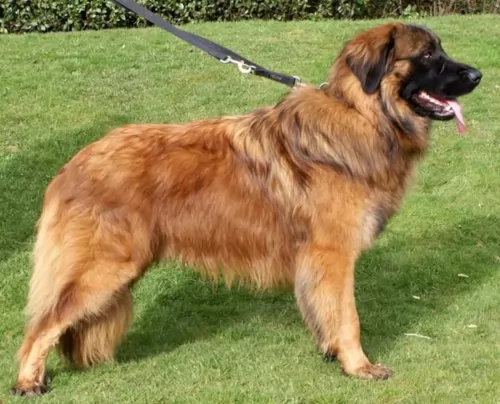 The Estrela Mountain Dog loves his human family and takes guarding them and protecting them seriously. He is a strong willed, independent dog that will require training and socialization. He makes an excellent pet, and is calm and gentle with children.
The Estrela Mountain Dog loves his human family and takes guarding them and protecting them seriously. He is a strong willed, independent dog that will require training and socialization. He makes an excellent pet, and is calm and gentle with children.
The Estrela Mountain Dog has so much going for him – he is beautiful to look at, he is loyal and protective with his human family, he is intelligent, loving and a healthy type of breed, and he is just waiting to become a member of your family.
 Children friendliness - The Vizsla is very good with children.
Children friendliness - The Vizsla is very good with children.
Special talents - They are both excellent pointers and retrievers.
Adaptability - They are not very adaptable in living arrangements as they are much more suited for the country than the city.
Learning ability – The Vizsla is a very intelligent breed and easy to train. His learning ability is very high.
 The Estrela Mountain Dog can live to be between 10 and 14 years of age, but as with any large dog, he will have a tendency to suffer from hip- and elbow dysplasia.
The Estrela Mountain Dog can live to be between 10 and 14 years of age, but as with any large dog, he will have a tendency to suffer from hip- and elbow dysplasia.
Dilated cardiomyopathy is another common heart failure disease found particularly in large-breed dogs. The Estrela is prone to this disease and you’ll notice he has shortness of breath, abdominal swelling and coughing. The disease may not be curable, but there are certainly treatments for it.
 The Hungarian Vizsla has a series of health issues that include:
The Hungarian Vizsla has a series of health issues that include:
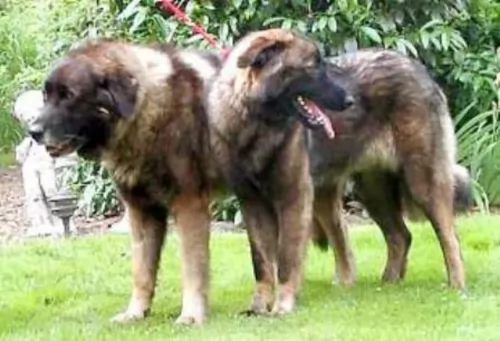 The Estrela Mountain Dog is a large dog and thankfully, when it comes to feeding him, experts in dog feeding have come up with commercially manufactured dog feeds that particularly cater for a dog’s age, his size and any illnesses he may have.
The Estrela Mountain Dog is a large dog and thankfully, when it comes to feeding him, experts in dog feeding have come up with commercially manufactured dog feeds that particularly cater for a dog’s age, his size and any illnesses he may have.
As a large dog, your Estrela Mountain Dog can suffer with joint problems such as hip dysplasia. For hip dysplasia you want to be looking at a dog food for large dogs which contains joint-health ingredients. An ingredient in the dog food such as glucosamine can work to reduce the damage brought about by hip dysplasia.
Mix in some cooked brown rice, vegetables and chicken into his kibble from time to time. You want your pet to live a long, healthy life and raw meat added in occasionally can increase your pets energy levels, reduce the risk of joint disease and ensure a shiny, soft coat. Raw meat can provide iron, zinc, vitamins, minerals and potassium.
The Estrela isn’t a huge shedder, but his beautiful, thick coat will require brushing twice a week. It’s your chance to check him over for fleas and ticks as well, and the entire grooming process – checking his ears, nails and teeth – is an excellent bonding experience for you and your canine friend.
The Estrela may be large, but he is fairly calm. He’ll love to join you on your daily walks or for a ball game in the garden. He can adapt to life in the city or the country, but his big size will mean he isn’t suited to a tiny property.
 Feed two to four cups per day of a high quality dry dog food. Break this up into three or four meals. Don’t free feed your puppy.
Feed two to four cups per day of a high quality dry dog food. Break this up into three or four meals. Don’t free feed your puppy.
Feed two to three cups per day of high quality dry dog food. Feed in two servings.
The Vizsla is an athlete with high energy.
The Hungarian Vizsla needs at least 30 minutes of exercise every day and maybe more. He needs a large yard or open field, but daily brisk walks will do if that is all that is possible. He needs to be stimulated intellectually as well and enjoys fetch, jogging with you, lure coursing, field trials, tracking and scent work, confirmation, agility, barn hunt, dock diving, rally, and obedience.